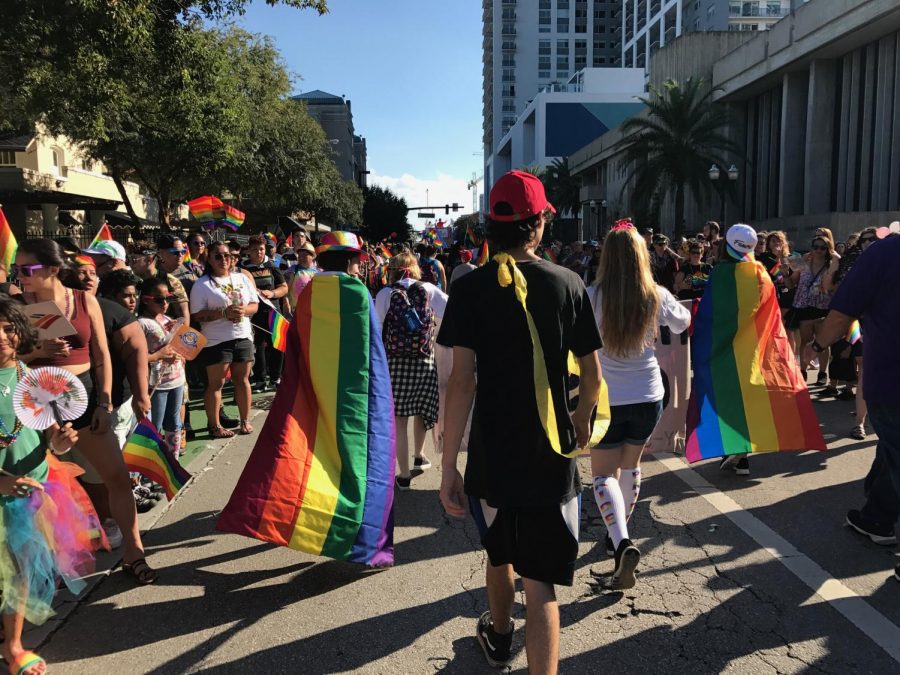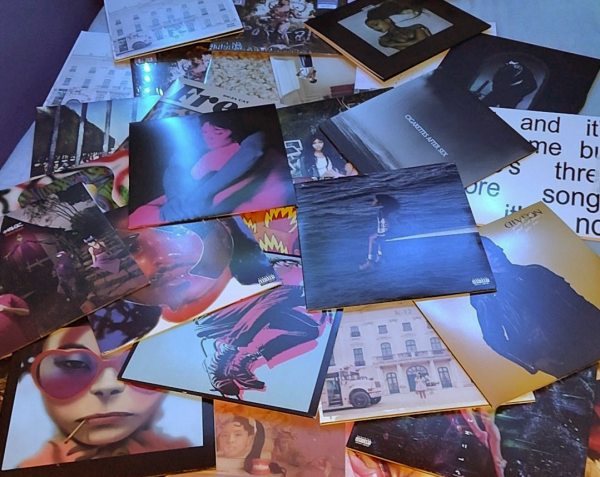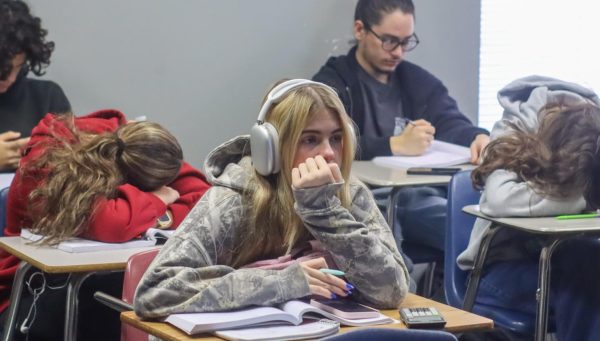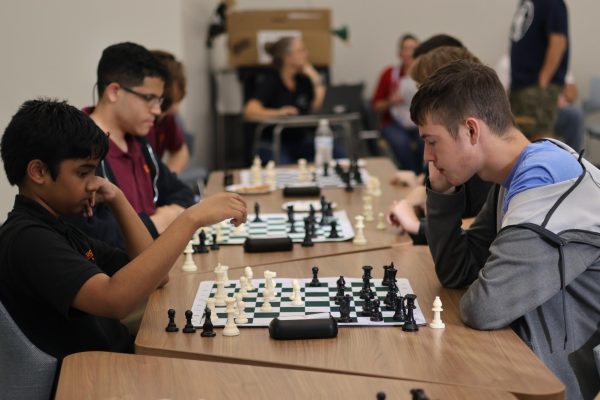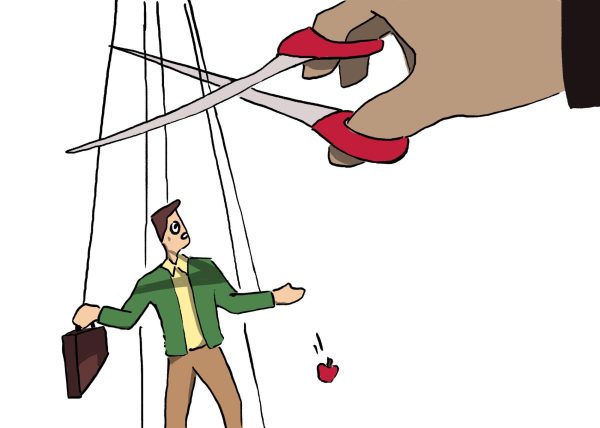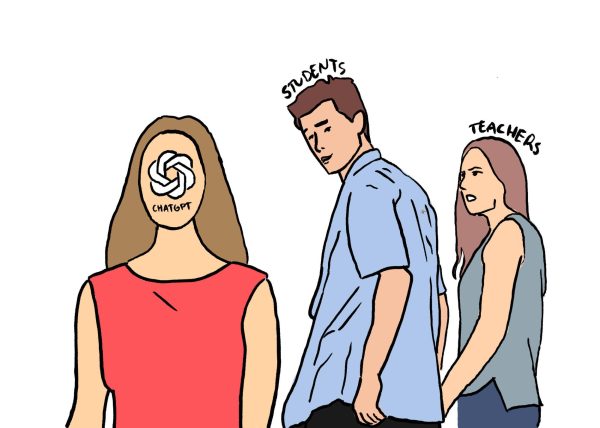Dark Side of the Rainbow
While the LGBTQ+ community can be proud of their identity and who they are, societal views and bullying cast a shadow on pride.
Rainbows often symbolize joy, diversity and hope. When they appear in the sky, people stop to marvel and express glee at the sight above. However, rainbows do not always come with upbeat backstories but are born out of cloudy days, rain, and overall bad weather.
The LGBTQ+ community is thought to be exuberant and colorful, yet being a member of this group can come with consequences that are quite the opposite.
On top of fear of rejection from family members, freshman Michaela Maschoff must also deal with the anger of those who are vehemently against her identity. Maschoff has faced verbal abuse after she came out as pansexual, meaning that she feels attraction to all genders, most recently after attending the Pride Parade held on Oct. 13 at Lake Eola.
“I have been called many names and been screamed at in the street. While at Pride, I was yelled at by a protestor; he told me that I was going to go to Hell,” Maschoff said.
Religion plays a dark role in the struggles of coming out too; Maschoff’s fear of rejection stems from a heavily-religious family who adheres to the Bible, which Maschoff knows contains anti-homosexual text.
Sophomore Taylor Philpot, who thinks it is “pretty known” to people that she is bisexual, refrains from telling her extended family due to religious reasons.
“ ,” Philpot said.
Physical abuse is also a concern for LGBTQ+ students. The 2015 Youth Risk Behavior Survey conducted by the Centers for Disease Control found that 10 percent of LGB students have been threatened or injured with a weapon on school property, while 34 percent have been bullied.
While protesters and strangers on the street can be aggressive toward LGBTQ+ teens, another peril students face is their own family. It is difficult and can be “pretty scary” in the words of Philpot, for a teen to come out to their friends and family, especially when they are disapproving. Jane is unable to tell their parents, for fear of disownment and physical danger.
“I very much can’t tell my parents-I would be put in danger. I would most likely be sent to a conversion therapist or a psychologist that would torture me into saying that I’m [cisgender], that I’m straight, and actively give me trauma related to those things for life,” Jane said.
The use of violence by family toward LGBTQ+ teens is also coupled with disownment, or the unacceptance that their child is still theirs after coming out. According to an article from the Washington Post in 2017, 40% of homeless teens are in the LGBTQ+ community.
Sophomore Carter Oakman has not faced violence due to his sexual orientation yet, he knows that he is at “higher risk” because of his homosexuality. Sophomore Jacob Carlson adds that he is even scared to be in public.
“I’m terrified almost any time I go out in public that someone will see me as ‘too gay’ and either verbally attack or worse,” Carlson said.
Oakman and Carlson both believe in being around people that love and support them. Oakman also feels that being around trusting people can make a difference and can help one be “more free.”
Although some of the most “out” LGBTQ+ students are able to be open about who they are in the general public, there is still a lurking fear of being turned away. Carlson is very open about who he is as a gay guy and does not try to “hide anything.” Still, he has not told certain family members because he is afraid of the way they would perceive him.
“I haven’t told my grandparents yet because I don’t know how they would react honestly, and I’m scared of losing their love,” Carlson said.
John, who is not as “out” about being pansexual, believes that waiting is the best answer if one is not ready to come to terms with others, or even themselves about their sexuality or gender.
“The only thing you can do if you aren’t comfortable telling people, is to wait. Everyone has their time, eventually you will firmly identify yourself, and once that happens it’s only a matter of time before you will be ready to have people know. It’s a part of who you are but you have to find it first,” John said.
Students not only have to deal with the extremes of being LGBTQ+, but they must tackle stereotypes and common misconceptions about their identity. One stereotype in particular causes uproar; the belief that bisexual people are more apt to cheat on their partners, “cheating bisexuals” because they have more options. Oakman is annoyed at these false interpretations, because they “let people assume things about me,” while John argues that it isn’t the sexuality that makes people unfaithful, it is the person themselves.
“If someone is going to cheat, then that is just them. It does not matter what they identify as, being bi/pan may give more options, but that does not mean anything if you are loyal to the person you love,” John said.
To combat this, some turn to scientific studies and research, while another suggests Google in general as it is “currently very free and easy to use.” The point is that LGBTQ+ community members are not one specific thing. They have different personalities, feelings, and ways they go about their identity; overall they are different people. For example, Sophomore Kayden Howell cites the recent breakout movie, “Love Simon,” featuring a gay main character who isn’t comfortable with sharing who he is and spends the movie trying to cover it up. This negates the whole “flamboyant gay man stereotype” that society tends to push onto the LGBTQ+ community.
“ ,” Howell said.
Howell identifies as both transgender and gay meaning they* must face twice the criticism. However, they advise taking a deep breath and just “letting your true colors shine.” Jane adds, “People who don’t accept who you love, or what you identify as, in the wake of every other part that makes you, you, aren’t worth the time.”
Along the same lines, Carlson deals with stereotypes and criticism the same way. Carlson does not try to outright correct someone, going for a more subtle approach. He goes about his life, ignoring what is said about the LGBTQ+ community.
“To that I say that we are just living our lives the way that we want, and we can do anything,” Carlson said.
*Current pronoun use
Your donation will support the student journalists of Hagerty High School. Your contribution helps us publish six issues of the BluePrint and cover our annual website hosting costs. Thank you so much!

